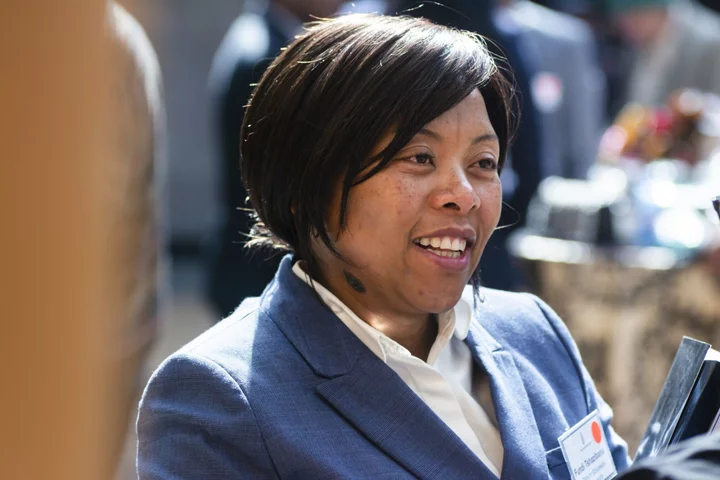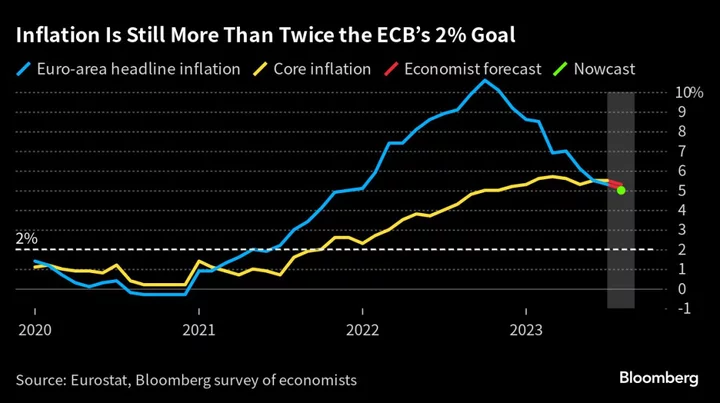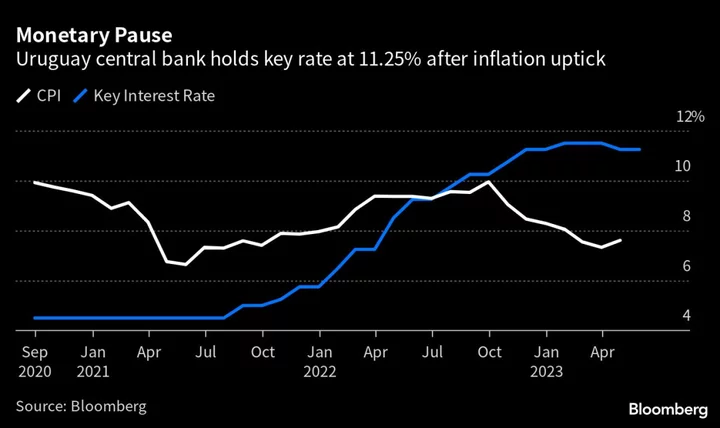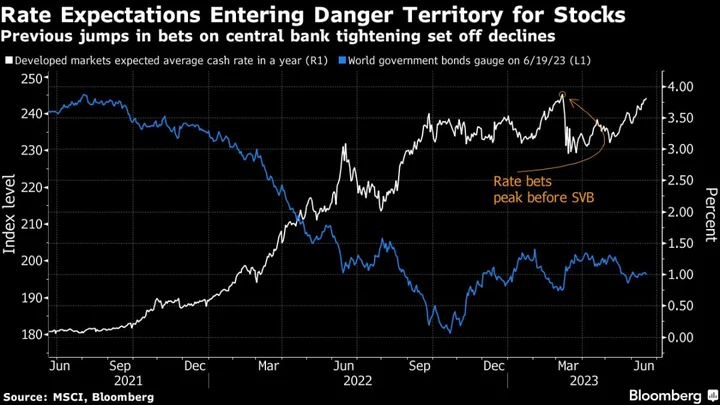South Africa’s central bank remains concerned by the risks to the inflation outlook and may resume hiking interest rates if they materialize, said Deputy Governor Fundi Tshazibana.
The central bank’s monetary policy committee last month paused its longest phase of monetary tightening since 2006, leaving its policy benchmark at 8.25% after raising rates in its 10 prior meetings, to bring cumulative increases to 475 basis points since November 2021.
“We’ve been very clear this is not a solid pause, because the risks remain significant,” Tshazibana said in an interview with Bloomberg television on Thursday, citing double-digit food inflation. “There are a number of vulnerabilities and risks that we are seeing,” she said, adding the central bank is also concerned by electricity, which is feeding into underlying prices.
The economy is experiencing its worst bout of power cuts with this year’s outages exceeding those for all of 2022, because state utility Eskom Holdings SOC Ltd. can’t meet demand from its aging and poorly maintained plants.
Inflation slowed to 5.4% in June but remains above the 4.5% midpoint of the central bank’s target range, where it prefers to anchor price-growth expectations. Policymakers predict inflation will only reach the midpoint in 2025, and are closely watching inflation expectations for evidence they are moderating.
Consumer Pain
Still, while the central bank is concerned by inflation risks, its policy actions are being felt in the economy with consumers starting to “take strain,” she said.
The pain “is there, it’s very visible. It’s visible when one looks at household spending numbers,” Tshazibana said. “We’re expecting household spending to only rise by 1% this year, and that is not an economy that is firing up and charging forward,” she said.
The impact is also evident in the banking sector. “If one looks at non-performing loans by banks, one has seen a sharp increase in those starting from the second quarter of last year. So the pain is coming through,” said Tshazibana, who is also the chief executive office of the Prudential Authority.
She later told Bloomberg reporters that non-performing loan levels were above 20% in some categories of credit, though banks are still well capitalized.
“At this point in time we can say that for the six largest institutions, capital remains healthy and strong,” she said.
(Updates with more comments from deputy governor from paragraph six.)









